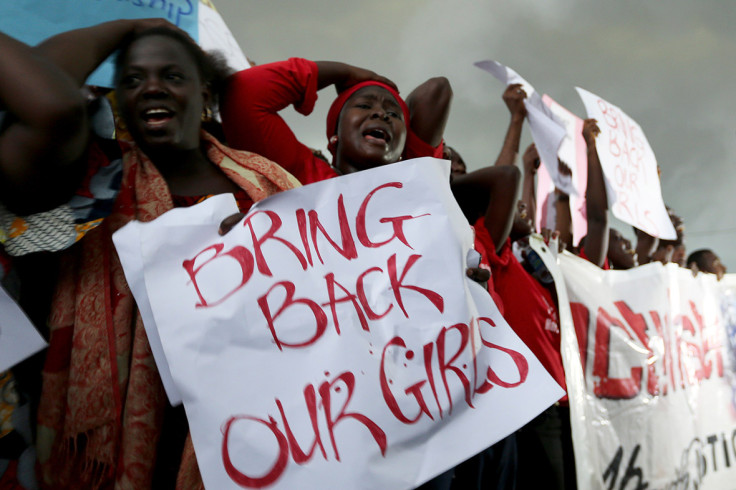Nigeria: Boko Haram negotiations to free Chibok girls 'impossible' without Isis consent

Negotiations between the Nigerian government and terror group Boko Haram are unlikely to result in the release of the 219 schoolgirls kidnapped by the militants, an intelligence group has warned. Some 300 girls were abducted in the remote village of Chibok, in the restive Borno state, in April 2014. Shortly after, around 50 escaped while some 219 are still held captive, amid reports they have been sold as slaves or are being forced to carry out suicide bombing missions.
The mass abduction, not the only one carried out by Boko Haram, sparked worldwide outrage and prompted countries to assist the Nigerian government in the search of the girls. In July, President Muhammadu Buhari said the government was ready to negotiate with the terrorists in order to curb violence and see that the girls are freed. He reiterated his will to engage in talks with the insurgents during an official visit in Paris, where he said his government had refused to release a Boko Haram bomb expert in exchange for the girls.
He added that his administration will continue to talk with the terrorists after establishing who the real leaders of the group are. He said: "It is very important that if we are going to talk to anybody, we have to know how much he is worth. Let them bring all the girls and then, we will be prepared to negotiate."
Who are Nigeria's Boko Haram terrorists?
Boko Haram (recently renamed Iswap) fights against Western influence in Nigeria and aims to impose its version of Sharia law in the country.
The group declared an Islamic caliphate in Gwoza, along the Cameroon border, in August 2014.
Boko Haram has raided several cities in the north of the country in a bid to take control of more territory.
Three states − Adamawa, Borno and Yobe − have been under a state of emergency since May 2013, due to Boko Haram's attacks.
However, David Otto, CEO of UK-based global security provider TGS Intelligence Consultants, warned there is another important aspect that the Nigerian government should not fail to remember: Boko Haram "has become a provincial terror group" after it joined forces with Islamic State (Isis) terrorists.
Otto told IBTimes UK: "It's going to be very tricky. Buhari said he wants to release all of them [girls] and it's quite impossible because some of the Chibok girls have died or have been distributed to different groups in different areas.
"It is also inconceivable that the group would free all the girls. They [government] have to face the fact that Boko Haram is no longer a national organisation as it used to be, but it is now a branch of IS, which does not encourage negotiations."
Otto added that it is still early for Boko Haram to release a statement in response to what Buhari said and the group will probably speak only after the Nigeria president declares whether an agreement has been reached or not.
In the meantime, TGS believes the Nigerian government should make sure "to speak with the right people". Otto added: "There are so many groups claiming that they are Boko Haram, that the only way you can be sure you are negotiating with the right group is if you talk with the leaders."
© Copyright IBTimes 2025. All rights reserved.





















